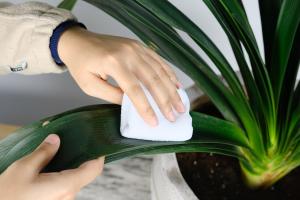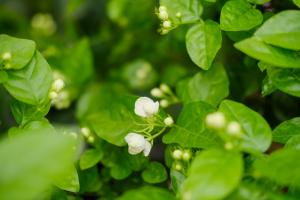Do Clone Pot Plants Have Seeds?
Cloning, a process of creating identical copies of a plant, is a popular method among marijuana growers. Many growers prefer cloning as it ensures the growth of the same qualities of a plant, such as potency, aroma, and medicinal properties. One question that growers often ask is whether clone pot plants have seeds or not.
Cloning Process
Before we answer the question, let us first discuss the cloning process. Cloning involves taking a cutting or a stem from a mother plant and planting it into a growth medium such as soil, rockwool, or water. The cutting will then develop roots and grow into an individual plant. As the clone plant originates from a single mother plant, it contains the exact genetic information and characteristics of the mother plant.
The Answer
The answer to the question is no, clone pot plants do not have seeds. This is because the process of cloning only involves taking a cutting or stem from a mother plant and growing it, while the seed is the reproductive part of the plant that produces a new generation of plants. Therefore, you cannot expect a clone plant to have seeds as it does not involve the sexual reproduction of the plant.
No Pollination
The reason why clone pot plants do not produce seeds is that there is no pollination involved in the cloning process. Pollination occurs when the male cannabis plant pollinates the female cannabis plant, resulting in the production of seeds. In cloning, there is no need for pollination as the cutting is already a genetically identical copy of the mother plant.
The Benefits of Cloning
Cloning has several benefits over growing from seeds. As mentioned earlier, cloning ensures that the new plant will have the same genetic information and characteristics as the mother plant. This is beneficial for growers who want to maintain the strain's potency, aroma, and medicinal properties. Cloning also allows growers to produce more plants with desirable features, and it is a faster and more efficient way of growing plants compared to growing from seeds.
The Drawbacks of Cloning
While cloning has several advantages, it also has some drawbacks. One of the significant drawbacks is that clone plants are more susceptible to pests and diseases as they have the same genetic traits as the mother plant. This is because the genetic information of the mother plant does not change, making the clone plant more vulnerable to pests and diseases that the mother plant may have. Disadvantages of cloning also include that the clone plant is susceptible to mutations that the mother plant might not have, and clones tend to have a shorter lifespan compared to plants grown from a seed.
Conclusion
In conclusion, clone pot plants do not have seeds as the process of cloning only involves taking a cutting or stem from the mother plant and growing it. Since there is no pollination involved, there is no production of seeds. Cloning has its benefits and drawbacks that growers must consider before choosing this method. It is important to understand the cloning process and its differences from growing from a seed before beginning to clone. When done correctly, cloning can be an effective and efficient way to grow identical plants with desirable qualities.

 how many times do yo...
how many times do yo... how many planted tre...
how many planted tre... how many pine trees ...
how many pine trees ... how many pecan trees...
how many pecan trees... how many plants comp...
how many plants comp... how many plants can ...
how many plants can ... how many plants and ...
how many plants and ... how many pepper plan...
how many pepper plan...































